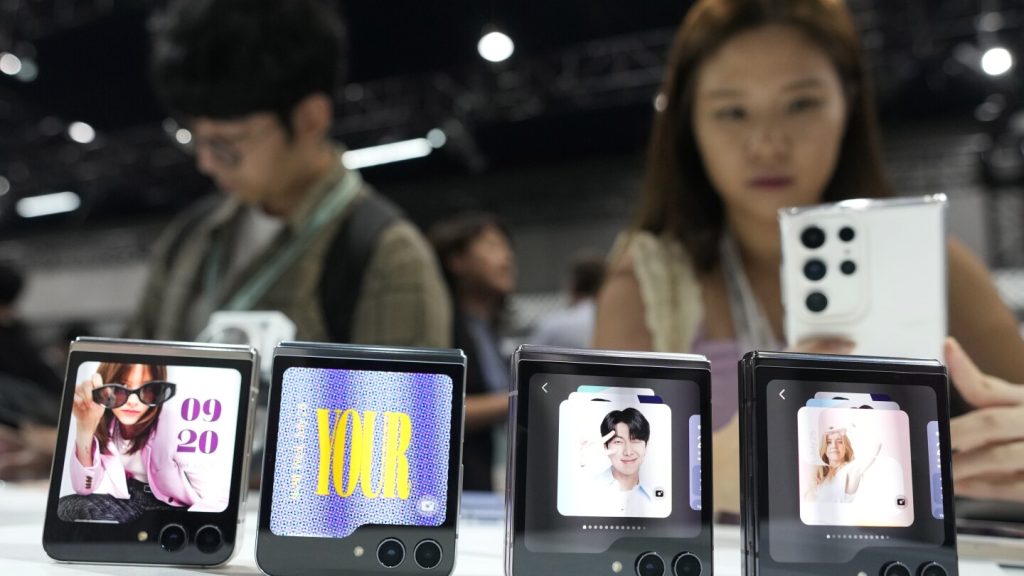Global smartphone shipments saw an increase of nearly 8% in the first quarter, as reported by International Data Corp. This marks the third consecutive quarter of growth and signals the return of Samsung to the number one position. Samsung shipped 60.1 million units in the quarter, down slightly from last year, while Apple came in second with 50.1 million units shipped, a decrease of 9.6% from the previous year. Despite this, both Xiaomi and Transsion, the third and fourth largest smartphone makers, experienced significant market share growth of 34% and 85% respectively.
According to Nabila Popal, research director with IDC’s Worldwide Tracker team, the improvement in average selling prices indicates that consumers are opting for more expensive devices as they plan to use them for longer periods. This shift in consumer behavior towards investing in higher-end smartphones could be attributed to the increasing awareness of the longevity and capabilities of such devices. The data also suggests that consumers are becoming more selective in their smartphone purchases, choosing models that offer advanced features and durability.
The competition in the smartphone market remains fierce, with Samsung reclaiming the top spot from Apple in the first quarter. Despite a slight decline in shipments compared to the previous year, Samsung’s strong performance indicates its ability to adapt to changing market conditions and consumer preferences. Apple, on the other hand, experienced a decrease in smartphone shipments, possibly due to the saturation of the high-end smartphone market and increasing competition from other manufacturers offering more affordable options.
Xiaomi and Transsion’s substantial market share growth highlights their success in capturing the attention of consumers with their diverse range of smartphones at competitive price points. The growth of these brands demonstrates the importance of offering value for money in a market where consumers are increasingly price-conscious and discerning. As smartphone technology continues to evolve rapidly, manufacturers must focus on innovation and differentiation to stand out in a crowded market and attract consumers seeking the latest features and performance.
The global smartphone market is expected to remain dynamic and competitive in the coming quarters, with manufacturers vying for market share by offering innovative features, competitive pricing, and robust marketing strategies. The shift towards higher-end smartphones with improved capabilities indicates a growing demand for devices that deliver exceptional performance and value for money. As consumer preferences evolve and technology advances, smartphone manufacturers will need to stay agile and responsive to meet the changing needs of the market and sustain their growth in an increasingly competitive landscape.
Overall, the latest data on global smartphone shipments in the first quarter provides valuable insights into the trends shaping the industry and the strategies that manufacturers are implementing to drive growth. With Samsung leading the market in shipments and other players like Apple, Xiaomi, and Transsion seeing significant gains in market share, the competition in the smartphone industry is expected to intensify. Consumers can look forward to a wider range of options, from high-end flagship devices to budget-friendly smartphones, as manufacturers strive to meet the diverse needs of users worldwide.


